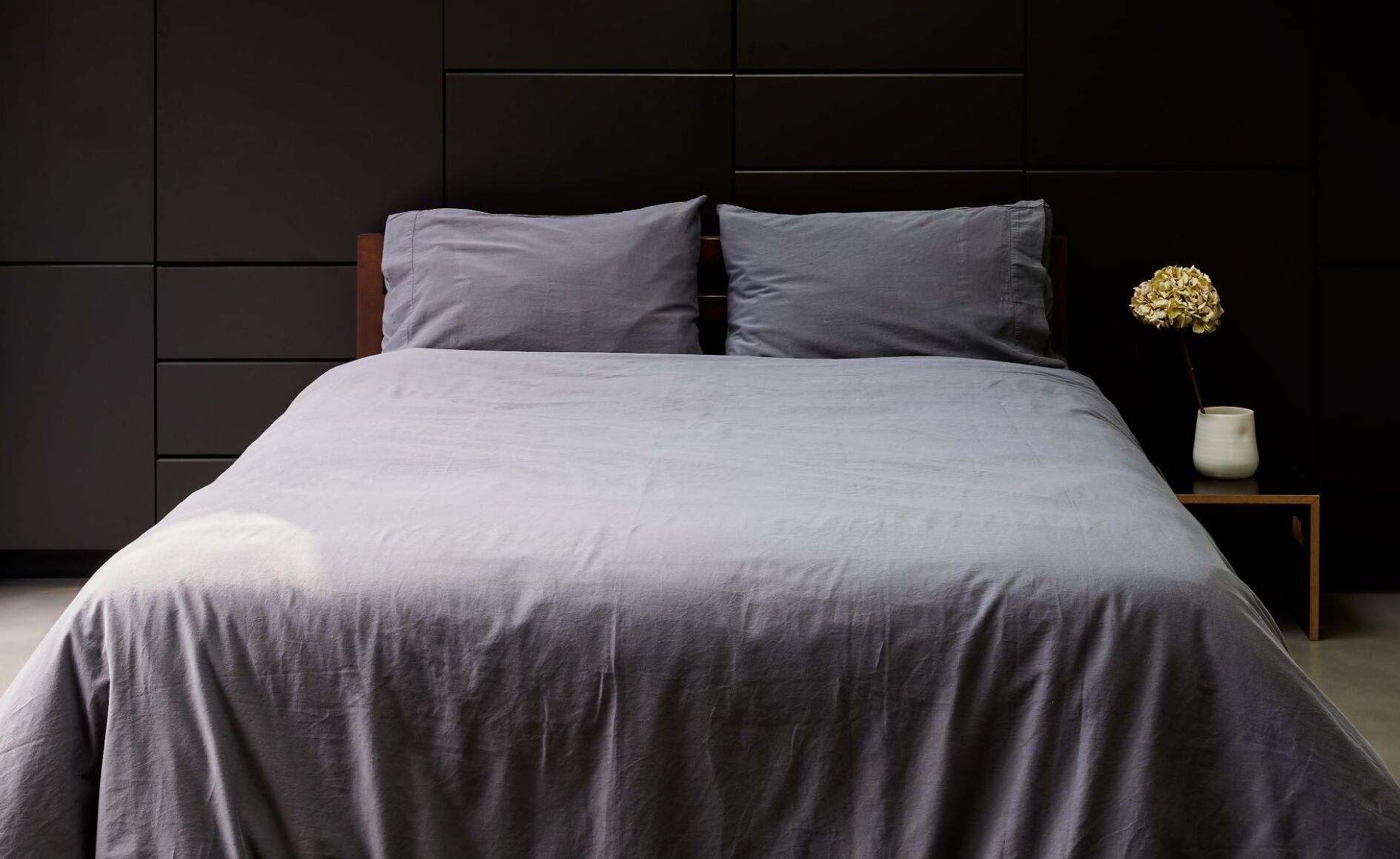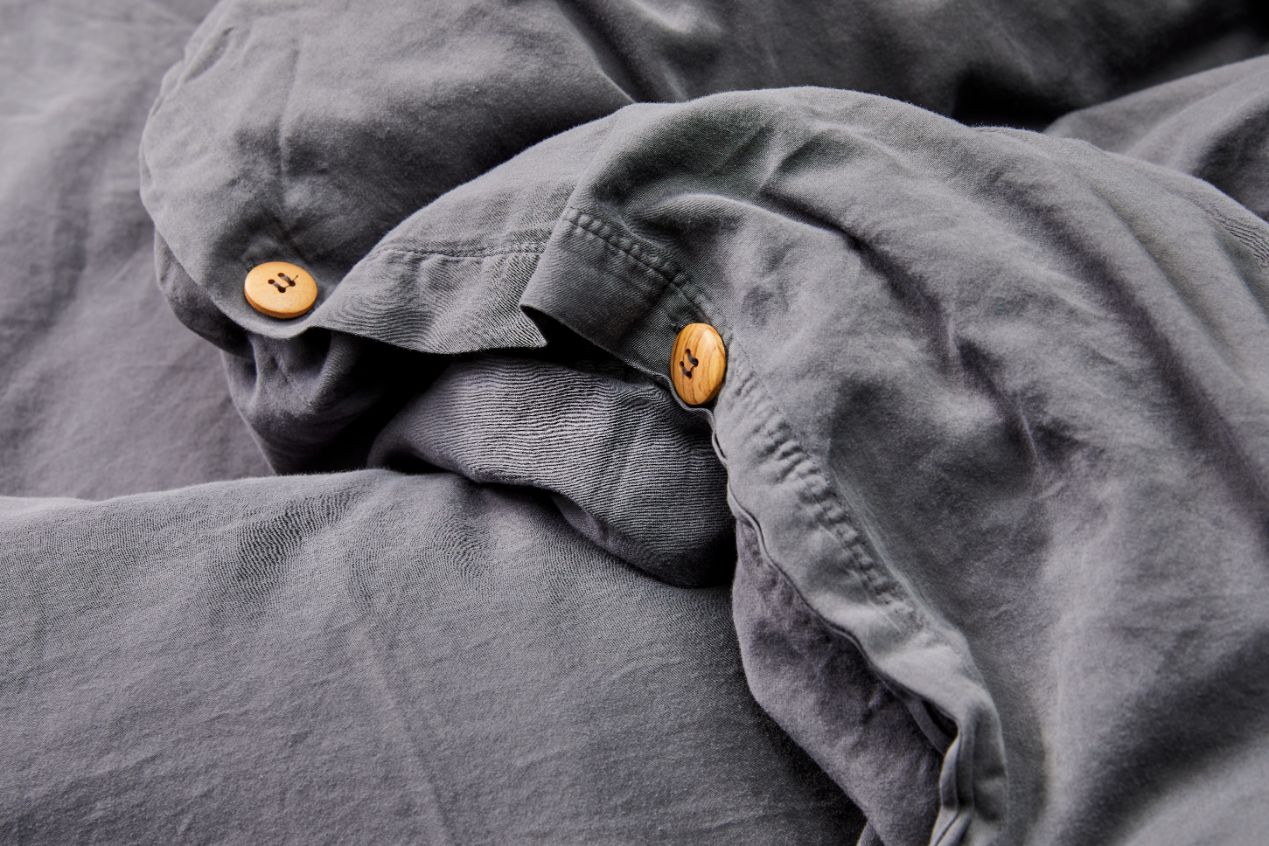365-DAY GUARANTEE | FREE SHIPPING | FREE RETURNS
365-DAY GUARANTEE | FREE SHIPPING | FREE RETURNS
365-DAY GUARANTEE | FREE SHIPPING | FREE RETURNS
Your Cart is Empty
You might be thinking, "Why buy and use organic bedding? Doesn't 'organic' only matter at the grocery store?" Nope! Organic certifications aren't limited to fruits and vegetables. Any crop can be grown organically, so natural textiles like cotton are no exception. But what is organic bedding anyways, and why is it the best option? Get ready to learn why you should use organic bedding materials in your home.
To answer the question, what is organic bedding, we first need to examine what it means to be organic. "Organic" is a bit of a buzzword. We all know it's a good thing, but what does it mean?
Standard farming practices often involve genetically-modified organisms (GMOs), synthetic fertilizers, and pesticides. Exposure to these harsh chemicals can cause immense damage to natural ecosystems, farm laborers, and, ultimately, you.


But it doesn't stop there. Non-organic practices prioritize yield over responsibility, and overusing soil resources compromises water retention and nutrient cycling abilities. So, crops require more water and are more likely to pollute waterways with the soil's chemicals. Plus, poor soil quality equals poor plant growth. No one wins.
That's where organic farming comes into play. Organic practices focus on the whole picture, not just the harvest. So instead, these farmers use natural fertilizers and pest control methods while also rotating crops to protect the soil. The result? A happier, healthier ecosystem.
But what is organic bedding, then? It's simple: bedding composed of organically-grown textiles.
With all the damage that traditional farming practices can do, it's not enough to claim a product is organic. There needs to be regulated standards — and there are!
But "organic" isn't a one-size-fits-all term: it differs across countries and each crop. While the goal is essentially the same, the process of gaining an organic label depends on where you are. So what is certified organic bedding in one location may not meet the standards of another nation.
However, things get a bit more complicated with textiles. Organic farming only regulates growing conditions, not what happens after harvest. But what if organic fabric gets treated with unsafe chemical dyes or coatings? The tag might still say "organic," yet is it safe?
Luckily, textile testing like Oeko-Tex's Standard 100 exists. The organization tests every component of the final product, proving it's entirely harmless for human health. In fact, Standard 100 substance regulations are often stricter than national and global requirements.

Why choose organic bedding? The list goes on and on. From health benefits to enhanced durability, to eco-friendly features, and more, the reasons why organic bedding is the best option are endless.
Falling in love with your bedding only for it to wear in a few years is a true nightmare. The good news is that leaving harsh chemicals out of the equation means that organic fibers are stronger and last longer. So if "Why buy organic bedding if it's more expensive?" was ever a question in your mind, consider this: even though organic products might be pricier upfront (for now), they're investments that pay off big time.
Even those without sensitive skin or allergies can react to toxic substances in conventional textiles — and it's even worse for those who need extra caution with their skin. Consider that issue solved when you buy organic bedding. Free from harmful substances, organic bedding is the best choice for all sleepers.
Eventually, long after you're done with your bedding, natural materials like cotton and linen biodegrade — a massive win for the planet. But that also means that any chemicals in the textile will be released into the environment. So all the more reason to opt for toxin-free organic bedding over chemical-filled conventional materials.
Water Conservation and Responsibility
Did you know that conventional cotton is one of the world's thirstiest crops? The funny thing is, its poor water retention also makes it prone to flooding. This makes it incredibly easy for excessive nutrients and chemicals to pollute local waterways harming aquatic critters, boosting algal blooms, and contaminating the environment.
Organic farming, by comparison, reduces cotton's water consumption by 91 percent. Plus, the lack of pesticides, insecticides, and fertilizers means less hazardous runoff. So if that doesn't prove why organic bedding is better, what does?
Safer Working Conditions
Regular farming practices are irresponsible in many ways, but exposing workers to all those harsh chemicals is downright unethical. Opting for toxin-free methods keeps laborers safer and is one of the most significant reasons why you should use organic bedding materials.
Better Land for the Future
Constantly growing the same crops on the same plot of land (monocropping) is detrimental to soil quality. Monocropping depletes the soil's nutrients making synthetic fertilizers and pesticides necessary to grow healthy plants. It's a horrible cycle. Plus, unhealthy soil harms natural biodiversity, only leading to more drastic future consequences.
Organic Bedding Offers a Luxurious Feel
Why use organic bedding if it's not softer and more luxurious than other materials? Good news: it is. You don't have to choose between safe sheets and cozy comforters — it's the safety that makes them softer. Skipping the toxic additives keeps fibers strong, long, and fine. And in the textile world, that means effortlessly luxurious.
Some materials can't be organically produced. But why?
Think back to what we've learned about the term "organic:" it refers to agricultural practices. So, only natural materials, never synthetics, can meet these standards. Still, not every raw material can gain organic certification (or it's incredibly rare).
Here are some common organic textiles:
Did you spot the odd one out? Though wool isn't a crop, it still has agricultural ties and can be produced per organic livestock standards. So, instead of looking at regulations around crop rotation or pesticide use, organic wool criteria revolve around the animals' treatment and environment. For example, the sheep must have outdoor access available, and hormone and antibiotic use is prohibited.
Other natural fibers may be generally sustainable but are typically not certified organic. These include:
Then, there are synthetic fabrics. These are impossible to certify as organic, so beware if anyone tries to promote them as such:
But here's the catch: many manufacturers blend organic and inorganic textiles. In fact, there's a threshold for how much inorganic material fabric can contain while still holding its certification. So don't forget to look at the garment tag if you're searching for 100 percent organic materials. Why choose organic bedding if it's not fully organic after all?

Why buy organic bedding if you're not choosing the best options available? Here are some helpful tips that'll make your shopping experience a thousand times easier.
Why use organic bedding? The better question is, why wouldn't you if you could? Organic practices support the health of the environment, workers, and you. Whether you're looking for durable organic cotton sheets or seeking the softest duvet cover, the list of reasons why you should use quality organic bedding never ends.
